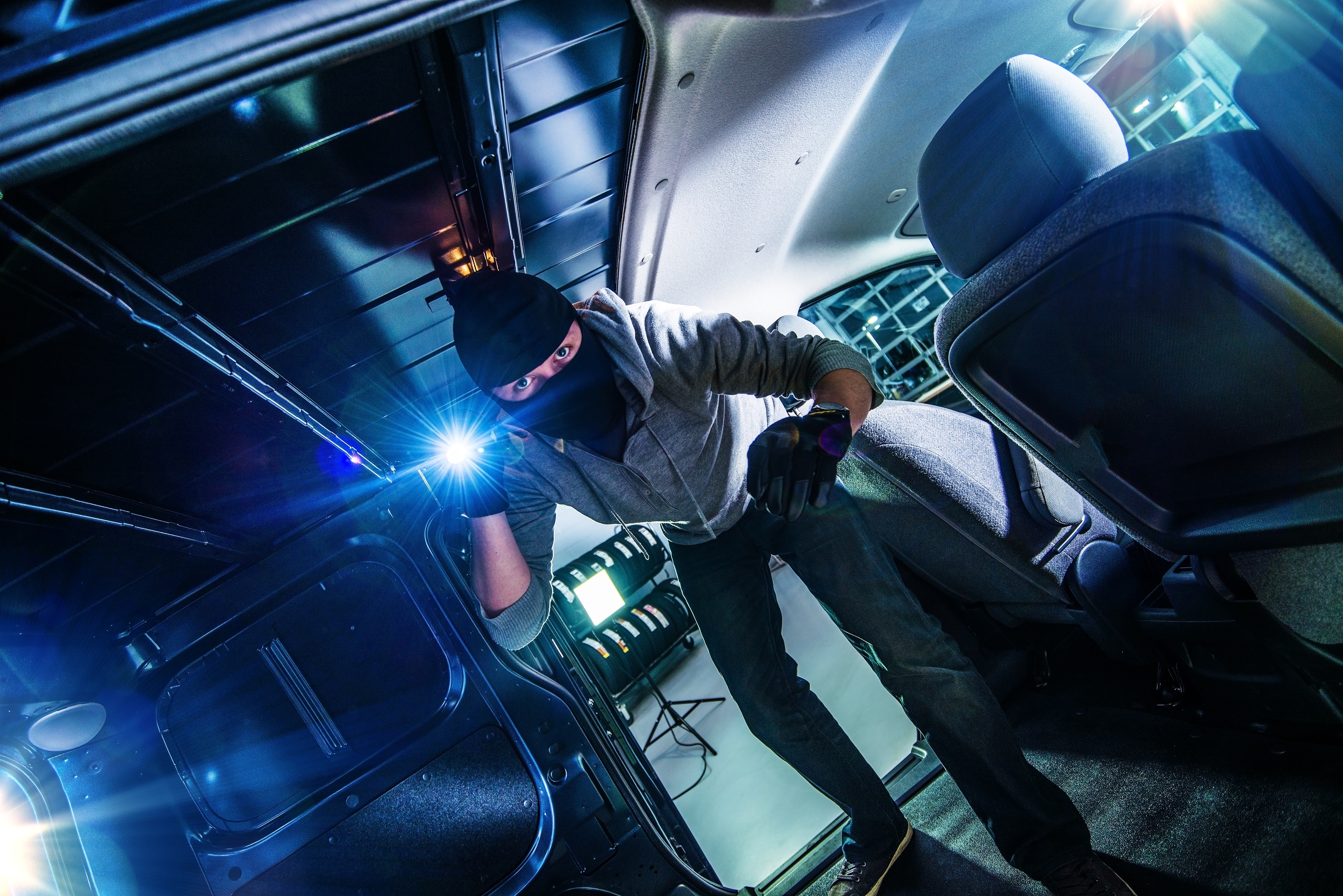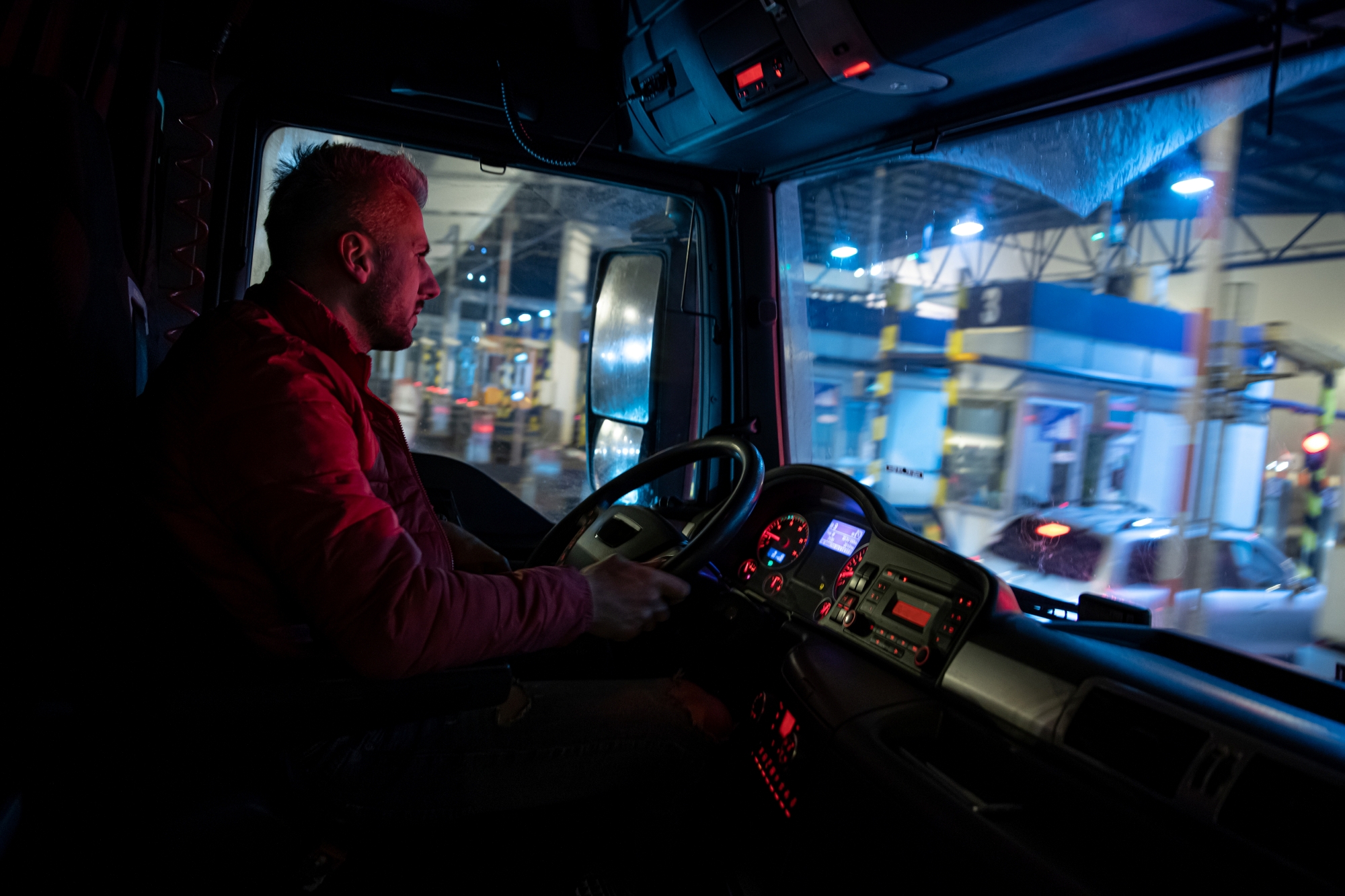
Miranda Blake
Tipy pro zabezpečení vozidla: Chraňte svůj vůz před krádeží
Vytvořeno: 14.11.2024
•
Aktualizováno: 14.11.2024
Dopravní společnosti ve Velké Británii a Evropě mohou výrazně snížit riziko krádeže vozidel a nákladu. Ochrana nákladního vozidla není jen o zabezpečení samotného vozidla; zahrnuje komplexní přístup, který zahrnuje technologie, školení, zapojení komunity a proaktivní plánování. Se správnými opatřeními mohou manažeři vozových parků zajistit bezpečnost řidičů a integritu majetku a podpořit tak bezpečné prostředí pro své činnosti.
Co by měli řidiči dělat
Zabezpečení vozidla
Zlepšete zabezpečení svého vozidla použitím různých zařízení, jako jsou visací zámky, jedinečně očíslované plomby a sklopné šňůry. Ty by měly být použity ihned po naložení, aby vytvořily další vrstvu ochrany proti neoprávněnému přístupu.
Důkladná kontrola je nezbytná. Po každé zastávce věnujte chvíli kontrole nákladního vozidla a jeho nákladu. Hledejte jakékoli známky manipulace nebo podezřelé činnosti. Ostražitost je rozhodující pro prevenci případů krádeží.
Dokumentace
Udržujte komplexní kontrolní seznam zabezpečení vozidla. Ten by měl být v případě potřeby snadno dostupný k nahlédnutí příslušníkům pohraniční stráže nebo jiným orgánům. To nejen prokazuje vaše odhodlání, ale také pomáhá při vyšetřování, pokud dojde ke krádeži.
Bezpečná místa
Vybírejte si dobře osvětlená a frekventovaná parkoviště. Místa s velkým pohybem chodců a kamerami jsou pro zloděje méně lákavá. Pokud je to možné, využívejte vyhrazená zabezpečená parkoviště, která jsou vybavena obvodovým oplocením a moderními kamerovými systémy nebo pracovníky ostrahy. Tato místa poskytují další úroveň bezpečnosti. Pro noční parkování vybírejte místa, která jsou osvětlená a monitorovaná.
Najděte bezpečné parkoviště pro nákladní vozidla na své tranzitní trase pomocí mapy SNAP.

Technologie a vybavení
Zapojení pokročilých technologií může výrazně posílit zabezpečení vašeho vozidla. Vybavte svůj nákladní vůz moderními systémy, včetně sledování GPS, imobilizérů a panikových alarmů. Ty nejenže zabrání krádeži, ale také pomohou při vyprošťování v případě nehody.
Plánování trasy
Efektivní plánování cest vám navíc pomůže vyhnout se rizikovým oblastem. Využívejte software, který vám umožňuje mapovat trasy doručování a vyhýbat se známým místům krádeží nákladu. Zavedením telematiky a technologie GPS pro sledování vozidla v reálném čase - budete moci sledovat jeho polohu a zajistit dodržování plánovaných jízd.
Co by měli provozovatelé vozového parku udělat
Bezpečnostní protokoly a systémy
Pro všechny řidiče je zásadní dobře definovaný soubor bezpečnostních protokolů. Jako provozovatel vozového parku jim můžete poskytnout komplexní písemné pokyny s podrobným popisem bezpečnostních opatření, která by měli dodržovat. Takový přístup zajistí, že všichni budou na stejné vlně, pokud jde o bezpečnostní postupy.
Měli byste proškolit řidiče, jak efektivně používat systémy instalované v jejich nákladních vozidlech. Znalost těchto zařízení může zvýšit jejich účinnost. Je také dobré je poučit o možných hrozbách a důležitosti ostražitosti. Měli by znát běžné taktiky používané zloději a vědět, jak na ně vhodně reagovat.
Udržování vozů v optimálním stavu snižuje riziko poruch, které by mohly vést ke krádeži. Zavedením proaktivního plánu údržby zajistíte, že vaše vozidla budou vždy v dobrém technickém stavu. Pravidelné kontroly mohou zabránit mechanickým poruchám, které by mohly vaše nákladní vozidla učinit zranitelnými.
Komunikace a komunita
Pro efektivní řízení bezpečnosti je nezbytné vytvořit jasné komunikační kanály. Udržujte otevřenou komunikaci mezi řidiči, dispečery a bezpečnostními pracovníky. To umožňuje okamžité hlášení jakýchkoli podezřelých aktivit nebo problémů s vozidly. Vyzývejte řidiče, aby se během směny pravidelně hlásili.
Zapojení místní komunity může zlepšit vaše bezpečnostní opatření. Spolupracujte s ostatními podniky a místními orgány činnými v trestním řízení a sdílejte informace o potenciálních hrozbách. Společný přístup může zvýšit informovanost a vést k účinnějším strategiím prevence kriminality. Zapojte se do komunitních iniciativ, které se na to zaměřují - budování vztahů může vytvořit podpůrnou síť, která napomůže ochraně vašeho majetku.
Plány reakce
Pevný plán pro případ nouze může zmírnit následky krádeže. Vypracujte jasné protokoly pro reakci na incidenty. Měl by zahrnovat kroky pro nahlášení, kontaktování orgánů činných v trestním řízení a oznámení poskytovateli pojištění. Zajistěte, aby s nimi byli seznámeni všichni řidiči - měli by vědět, jak rychle a účinně jednat.
Situační povědomí
Školení řidičů, aby si všímali svého okolí, může zabránit krádežím. Poučte je o tom, jak rozpoznat podezřelé aktivity v okolí svých vozidel, a vyzvěte je, aby důvěřovali svým instinktům a hlásili všechny neobvyklé události. Kromě toho zdůrazněte, že je důležité upřednostnit osobní bezpečnost před nákladem. Pokud jsou konfrontováni se zlodějem, měli by se podřídit a nahlásit incident úřadům, jakmile je to bezpečné.
Sledování transakcí s pohonnými hmotami pomocí systému SNAP
Poskytujeme inteligentní platební systém, který automaticky zaznamenává a sleduje transakce s pohonnými hmotami. Když řidiči tankují svá vozidla na kterémkoli z více než 3 500 míst ve Velké Británii, jednoduše předloží svou palivovou kartu SNAP a zaplatí za transakci, čímž se eliminuje potřeba hotovosti nebo kreditních karet, což zjednodušuje celý proces.
Systém automaticky připíše každou transakci s pohonnými hmotami na účet spojený s registrační značkou vozidla. Tato automatizace odstraňuje nutnost řidičů ručně shromažďovat a předkládat účtenky, čímž se snižuje administrativní zátěž a možnost vzniku chyb.
Správci vozového parku dostávají měsíční faktury s podrobným přehledem o činnosti všech svých vozidel, což umožňuje snadné sledování spotřeby paliva a výdajů v rámci celého vozového parku.
Služba SNAP Fuel je integrována s ostatními službami účtu SNAP a umožňuje správcům vozových parků sledovat nejen transakce s pohonnými hmotami, ale také parkovací a mycí služby v rámci jednoho účtu, což poskytuje komplexní přehled o provozu a výdajích. Další informace o službě SNAP Fuel naleznete zde.


